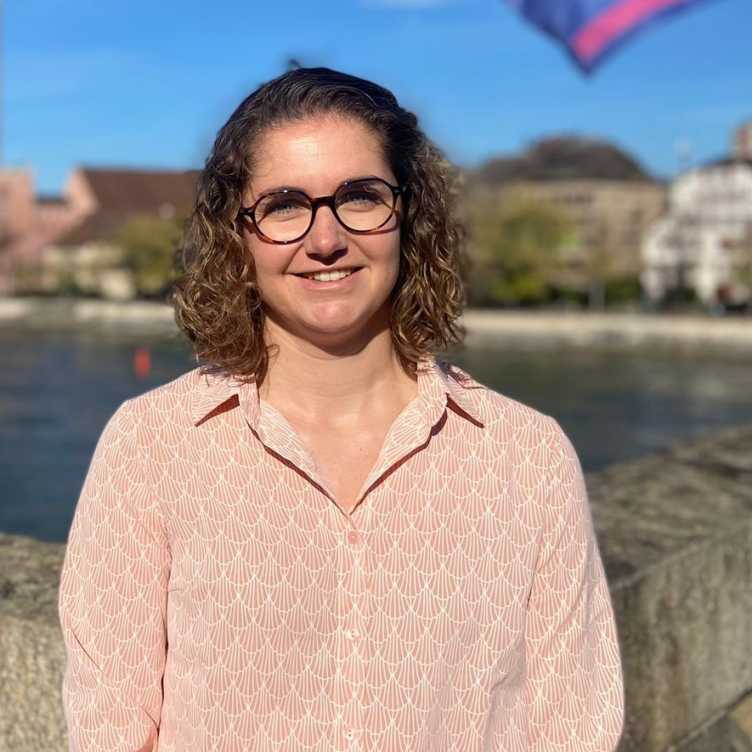Meet Noémie Lefrancq developing scalable phylodynamic tools to analyse large-scale genomic datasets
The French Biologist will focus in her research on the development of mathematical models that help shed light on the underlying transmission dynamics of infectious diseases. Noémie loves all kinds of sport activities. Inspired by the Basel triathlon held in September, she might give it a go in 2025.

What did you know about D-BSSE before you came here, and what was your motivation to come to ETH Zurich?
During my PhD on phylodynamic models, I kept reading about the excellent research done by Tanja’s group at D-BSSE. I also realized that the location of the department, in the heart of Basel, is ideal for collaborations beyond ETH Zürich, with the Swiss Tropical and Public Health Institute and University of Basel nearby. I was motivated by the idea of coming to such an excellent environment.
What were your expectations, and were your expectations met since you arrived in Basel?
I expected D-BSSE to offer a great environment for research, with access to top facilities and a focus on collaboration. My expectations were not only met but exceeded: when I first visited the department I was blown away by the stunning new building. I was also impressed by the number of seminars organized and the community around the department. Living up to Swiss reputation, getting settled in the department was very easy and efficient (like getting a computer on the first day!).
What were your first impressions…?
The team is very friendly and welcoming. We have regular meetings and discussions, but also informal chats and fun conversations. Everyone is quite outdoorsy – a change with my experience of Cambridge!
Which research will you pursue at D-BSSE?
Large-scale datasets of pathogen genomes present an unprecedented opportunity to uncover the mechanisms behind pathogen geographic spread and transmission dynamics at scale. However, traditional phylodynamic methods are limited to a few thousand genomes, and phylodynamic frameworks that leverage large-scale datasets remain largely descriptive. At D-BSSE I will be working on developing scalable phylodynamic tools to analyse large-scale genomic datasets and address the gaps in our understanding of pathogen spread and maintenance.
Which hobby do you hope to pursue in Switzerland?
I love all things related to sports. I am excited about discovering Swiss countryside through cycling and hiking in Summer, and skiing in Winter. Everything is a few trains away, which is a plus. As a passionate rower, I am also looking forward to rowing in Basel on the Rhine. I saw the Basel triathlon in September, and it picked my interest, maybe I’ll give it a go in 2025!
Many thanks, Noémie, welcome to the D-BSSE and and all the very best to you and your research!
Noémie studied biology at École Normale Supérieure Paris and the mathematics of modelling at Sorbonne Université Paris. After working as a research assistant at Institut Pasteur Paris, she joined the University of Cambridge in 2020 for her PhD, supervised by Henrik Salje and Julian Parkhill. She studied the global dynamics of Bordetella pertussis, the bacterium behind whooping cough, using genomes from throughout Europe and the world in a collaborative project with Sylvain Brisse’s group at Institut Pasteur Paris. In 2023, she received the Johnstone and Florence Stoney PhD award, from the British Federation of Women Graduates. In 2024, Noémie was awarded an ETH postdoctoral fellowship and joined Tanja Stadler’s Computational Evolution group at D-BSSE, ETH Zurich. Her research interests are focused on the development of mathematical models that help shed light on the underlying transmission dynamics of infectious diseases. She is particularly focusing on the use of genetic data, that is increasingly available and is bringing novel insights into pathogen transmission.